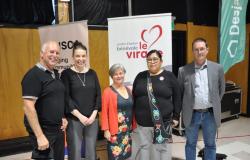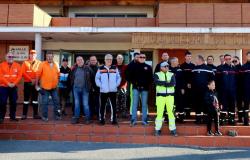Several localities in the far south of Algeria are affected by an epidemic of malaria and diphtheria. The residents of Timiaouine, in the wilaya of Bordj Badji Mokhtar, have launched an appeal to the authorities for better management of the fallout from the difficult health situation.
According to Professor Kamel Sanhadji, director of the Algerian health security agency, the two diseases have already caused the death of 40 people.
The appeal launched to the wali, signed by nine local associations, was shared this Tuesday, October 1 on social networks by the Workers’ Party (PT).
The signatories explain that the malaria epidemic, or “swamp fever”, is due to the marshes which formed after the heavy rains which fell on the region during the month of September. The marshes were formed over a length of 100 kilometers, crossing the commune of Timiaouine from east to west, particularly at places called Adjdem, Djoudane, Tadjraout and Tsameg.
These stagnant waters favored the proliferation of mosquitoes and other insects that transmit the disease. In addition to malaria, cases of diphtheria are also recorded.
According to the nine associations, the most affected are the nomadic populations living near the marshes, in El Djezal, Oued Tsameg, Oued Djoudane, Hassi Chourmal, Adledj and Attoul. An urgent appeal is made to the wali to transport vaccines and medicines to these places as a priority.
In the capital of the commune of Timiaouine, the situation is “catastrophic in every sense of the word”, deplore representatives of civil society, indicating that the rooms and zaouïas of the locality are overwhelmed with sick people and the “deaths are number in the dozens.”
Malaria and diphtheria: difficult situation in the far south of Algeria
The associations are calling for the dispatch of medical professionals specialized in the management of cases of malaria and diphtheria as well as emergency food aid, particularly basic necessities.
“The undernourishment of certain nomadic families impacts immunity and the ability to resist disease,” underline civil society associations.
The director of the National Health Security Agency, Professor Kamel Sanhadji, revealed the figures for contamination and deaths on Monday. There were a total of 40 deaths, 28 from diphtheria and 12 from malaria.
Concerning the diphtheria epidemic, 115 cases have been recorded since August 28, mainly in border areas such as Tin Zaouatine, In Guezam and Timiaouine. Of the 28 deaths, 27 were reported in the Tin Zaouatine region.
In addition, 421 cases of malaria were recorded, also in border areas, including 200 cases in In Guezam.
The situation is however improving, at least with regard to diphtheria since a drop in the number of cases has been noted for three days and mosquito control is taken care of by the services of the Ministry of the Interior, indicated the specialist, adding that there is no risk of contamination in airports.
On Algerian Radio, Sanhadji confirmed that the epidemic “spread during this favorable period marked by the latest rains having caused stagnant water and the emergence of mosquitoes in the desert”, explaining that diphtheria is a contagious disease, while malaria is transmitted by mosquitoes.
He also confirmed that health structures in remote wilayas “are under attack and are saturated”.
The majority of cases of diphtheria and malaria were “imported” by migration from certain neighboring countries where, said the professor, “the health system is not necessarily developed like ours where the vaccination coverage rate approaches or exceeds 80% of the populations.
All affected areas benefit from a regular supply of vaccines and drugs, with a therapeutic protocol in accordance with the recommendations of the World Health Organization (WHO), he assured.
Sanhadji argued that it will be necessary to strengthen on-site screening resources, knowing that tests are still being carried out at the Pasteur Institute in Algiers, more than 2,300 kilometers away.






